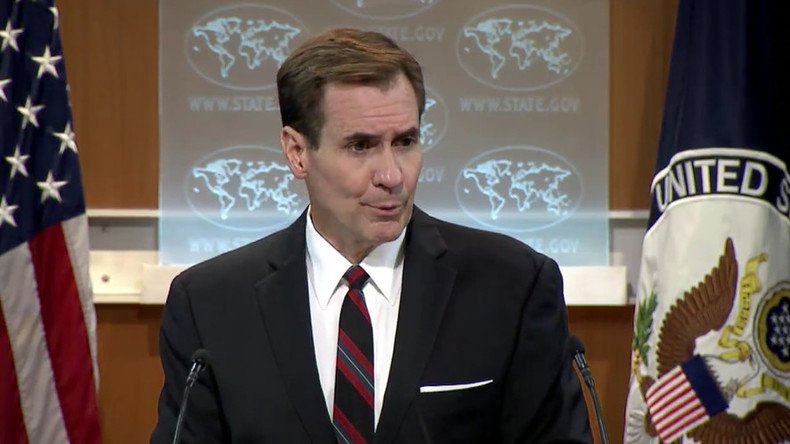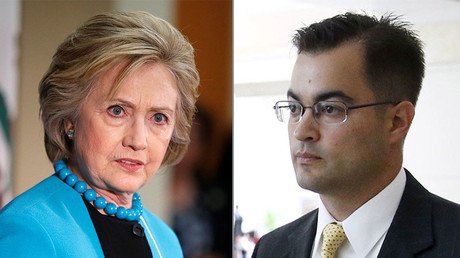State Dept says it ‘deliberately’ cut part on Iran secret talks from its 2013 video

The State Department deliberately censored a reporter’s question regarding secret talks with Iran from a video of a 2013 briefing, spokesperson John Kirby admitted on Wednesday, backtracking from previous statements that called the omission “a glitch.”
“We do not know who made the request to edit the video or why it was made,” spokesman John Kirby said on Wednesday, adding, “the edit was done the same day [day of the briefing].”
“When alerted to this, I immediately directed the video to be restored in its entirety with the full and complete copy that exists and had existed since the day of the briefing on the Defense Video and Imagery Distribution System website, otherwise known as DVIDS,” Kirby said.
The missing part of the video came to light in May when Fox News reporter James Rosen was working on a report about White House communications advisor Ben Rhodes and the US-Iran talks.
This came on the heels of a New York Time’s profile story about Rhodes, who conceded creating “an echo chamber” in working with reporters covering the Iran deal by “saying things that validated what we had given them to say.”
In preparing his report, Rosen tried to call up a couple of videos from the Department’s briefings back in 2013, but was surprised to find that one of them had a curious gap instead of his back and forth with then-spokesperson Jen Psaki.
On May 10, Rosen asked the State Department to clarify.
“What’s going on here?” he said.
Elizabeth Trudeau, the press office’s director, replied that “there was a glitch in the State Department video” which had been fixed after “Fox flagged it for us.”
In 2013, Rosen asked the State Department about the secret talks being held between the US and Iran – twice, in February and in December. The negotiations had reportedly been ongoing since 2011. Victoria Nuland, who was a spokesperson at the time, replied that no “government-to-government” discussions were taking place between the two states at that point.
In December, after the secret talks became public, Rosen asked Jen Psaki if lying was “the policy of the State Department.”
“James, I think there are times where diplomacy needs privacy in order to progress. This is a good example of that,” Psaki responded, calling it “an important component.”
Fox News eventually found that this eight-minute exchange had been edited out of a video posted on YouTube and replaced with a white-flash effect.
“They [the Office of the Legal Adviser] learned that a specific request was made to excise that portion of the briefing,” Kirby said. “As I understand it, the request was made – again, back in 2013 – over the phone. The recipient of the call, who is one of the editors, does not remember anything other than that the caller was passing on a request from somewhere else in the bureau.”
Psaki, who is now White House communications director, has rushed to say that the request was not hers.
I had no knowledge of nor would I have approved of any form of editing or cutting my briefing transcript on any subject while @StateDept
— Jen Psaki (@Psaki44) June 1, 2016
The State Department is currently “taking immediate steps to craft appropriate protocols on this issue,” Kirby assured reporters on Wednesday.
“We believe that deliberately removing a portion of the video was not and is not in keeping with the State Department’s commitment to transparency and public accountability,” he said.
READ MORE: State Dept to Senate: Sanction Iran, but don't endanger nuclear deal
No formal investigation will be made, however, as there is “little foundation for pressing forward,” because “there were no rules in place at the time to govern this sort of action,” Kirby said, while calling the censorship “an inappropriate step to take.”













